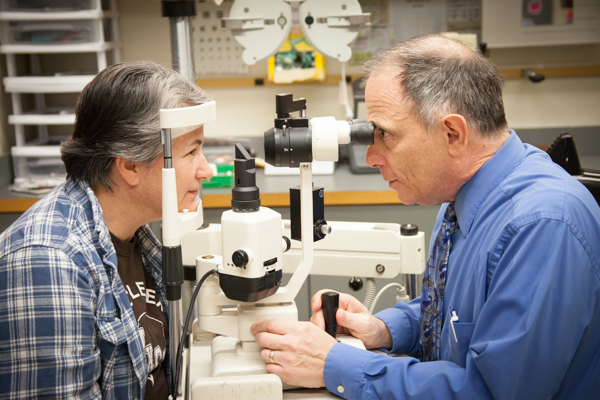High-Quality Retina Service Near Me: Leading Eye Treatment Providers
Recognizing the Different Eye Conditions Dealt With by Specialized Eye Treatment Professionals
In the world of eye care, specialized specialists play a vital role in identifying and dealing with a wide range of eye problems. As we get started on this exploration of the different eye problems addressed by specialized eye care experts, it comes to be noticeable that the elaborate web of eye wellness holds a myriad of fascinating insights waiting to be discovered.
Usual Refractive Errors
Refractive errors prevail aesthetic problems created by an imperfection in the eye's capacity to correctly focus light, leading to obscured vision. The most prevalent kinds of refractive errors consist of nearsightedness (nearsightedness), hyperopia (farsightedness), astigmatism, and presbyopia. Myopia happens when the eyeball is as well lengthy or the cornea is also curved, causing far-off things to appear blurred. Hyperopia, on the other hand, takes place when the eyeball is also brief or the cornea is too flat, leading to close-by items being out of focus. Astigmatism is defined by an irregularly designed cornea, leading to altered or obscured vision in any way ranges. Presbyopia is an age-related problem where the lens sheds its flexibility, making it tough to concentrate on close things.
These refractive mistakes can be fixed via different methods, consisting of glasses, call lenses, or refractive surgical treatment. Eye care specialists play a vital function in detecting and handling refractive errors to assist individuals attain clearer vision and boost their quality of life.
Age-Related Eye Problems
As individuals age, their eyes might be prone to a variety of problems beyond refractive errors that can influence their vision and total ocular wellness. Age-related eye conditions are usual and can substantially impact the quality of life for older adults. One of the most prevalent age-related eye problems is age-related macular degeneration (AMD), a condition that creates central vision loss and can make activities like reading and driving tough. refractive surgeries in al. Cataracts, one more usual problem among older individuals, cause clouding of the eye's natural lens, resulting in obscured vision. Glaucoma, characterized by damage to the optic nerve, is additionally more prevalent with age and can lead to field of vision loss or loss of sight if left neglected. Furthermore, presbyopia, a problem where the eye's lens sheds adaptability, is a natural part of aging and causes trouble concentrating on close items. Routine eye tests with specialized eye treatment professionals are crucial for early discovery and monitoring of these age-related eye conditions to maintain vision and preserve eye health as individuals expand older.
Vision-Threatening Conditions
Vision-threatening conditions encompass a variety of major eye conditions that have the potential to dramatically impact an individual's eyesight and total visual feature. These conditions posture a risk of irreversible vision loss if not quickly diagnosed and treated by specialized eye care professionals. Some typical vision-threatening illness include glaucoma, discover this info here diabetic person retinopathy, age-related macular degeneration (AMD), and retinal detachment.
Glaucoma is a group of eye problems that harm the optic nerve, usually due to high intraocular stress, bring about outer vision loss and prospective loss of sight if left unattended. Diabetic retinopathy is a difficulty of diabetes mellitus that influences blood vessels in the retina, triggering vision impairment or loss of sight. AMD is a dynamic problem affecting the macula, bring about central vision loss. Retinal detachment takes place when the retina separates from its underlying cells, leading to sudden vision loss that calls for immediate clinical interest (refractive surgeries in al).
Early discovery, regular eye exams, and prompt treatment are important in handling vision-threatening diseases to maintain vision and maintain lifestyle. Specialized eye care specialists play a crucial role in diagnosing, dealing with, and handling these conditions to stop irreparable vision loss.

Corneal Disorders
Corneal problems include a range of conditions that affect the clear front part of the eye, referred to as the cornea. These conditions can result in pain, visual disruptions, and in serious cases, vision loss. One typical corneal condition is keratoconus, where the cornea thins and protrudes exterior into a cone form, triggering astigmatism and blurred vision. Corneal dystrophies, such as Fuchs' dystrophy, cause gradual vision loss as a result of unusual deposits in the cornea. Corneal abrasions, often brought on by injury or international objects, can result in pain, soreness, and level of sensitivity to light. Additionally, infections like keratitis can irritate the cornea, possibly causing scarring and vision impairment otherwise quickly treated. Treatment for corneal conditions varies depending upon the particular condition but may consist of medicines, contact lenses, or in extreme situations, corneal transplants. Routine eye exams are essential for very early detection and monitoring of corneal conditions to maintain vision and eye health and wellness.
Neurological Eye Conditions
Neurological eye problems involve problems that impact the link between the eyes and the brain, affecting visual handling and total eye feature. These problems can manifest in various methods, affecting vision, eye activities, and even the coordination between the eyes. One typical neurological eye condition is optic neuritis, defined by swelling of the optic nerve bring about vision loss, color desaturation, and pain with eye motion.
An additional significant condition is nystagmus, where the eyes make repeated, unchecked movements, influencing aesthetic skill and depth understanding. Furthermore, problems like amblyopia, often referred to as "lazy eye," result from abnormal aesthetic advancement in early childhood, leading to reduced vision in official source one eye.
Neurological eye problems need specific care from specialists like neuro-ophthalmologists that have proficiency in both neurology and ophthalmology. Diagnosis often entails my latest blog post a detailed eye assessment, imaging research studies, and collaboration with neurologists to resolve the underlying neurological problems impacting the visual system. Treatment methods can include medication, vision therapy, or in severe cases, surgical treatments to manage these complex conditions effectively.

Verdict
In verdict, specialized eye care professionals treat a broad array of eye problems, including typical refractive errors, age-related eye conditions, vision-threatening diseases, corneal disorders, and neurological eye problems - refractive surgeries in al. By recognizing these different conditions and looking for ideal treatment from eye care specialists, people can preserve optimal eye health and vision. It is important to focus on routine eye evaluations and adhere to suggested treatment strategies to maintain and safeguard one's vision for the future